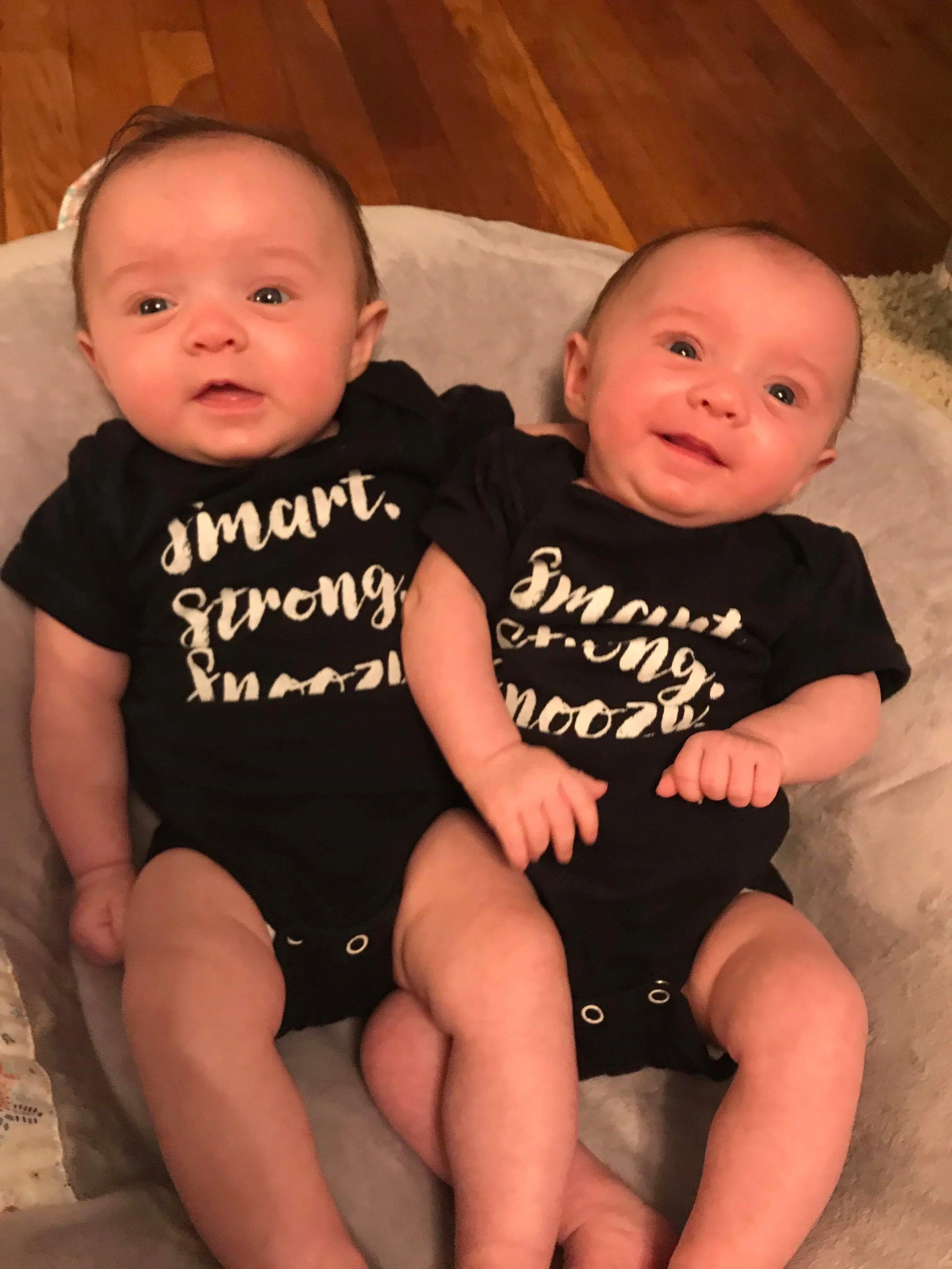Thanksgiving is approaching and we’d like to introduce everyone to two new members of the Theatrical Intimacy Education Team for whom I am most thankful. My daughters, Ellie and Maisie, born this past August.
Maisie (left) and Ellie (right)
I could leave this announcement at that, letting their precious cuteness absorb all of your attention as it does mine daily. But these girls have given me a huge new perspective and insight into a different area of theatrical intimacy that I now find myself wanting to research and question. The theatrical intimacy of pregnancy and parenting, because intimacy is more than sex.
This is not a departure from the way we have been thinking about intimacy, but an extension.
Anyone who has worked with me as a director, actor, or teacher will tell you that when it comes to the work I am thoroughly well researched. I’d like to think that when I played Stella in A Streetcar Named Desire, Nina in The Seagull, and even Lady Macbeth, along with other characters who were mothers, I had thoroughly detailed each character’s journey of pregnancy and parenting when imaging their given circumstances. I’d like to think as a director I have been sensitive to people on my team trying to balance family life, folks working on creating a family, or people on the postpartum journey. Yet, having just experienced a very difficult pregnancy and a complex postpartum time I realize where there have been gaps in my research. I am now discovering more questions I wished I had asked of myself that would have helped me be a better leader and collaborator in creating theatre.
What I love about collaborating with Chelsea and Kate at TIE is that we are constantly researching and expanding the pedagogy and theory of our work. Daily we are in the classroom, rehearsal, on set, and teaching workshops that present situations that give us more opportunity to research and expand this practice. These past few months on family leave have not inhibited that curiosity, instead it has expanded it to reflect upon the following:
How do we as theatre artists support the new parent that is a theatre/film artist?
How do we respect the actor returning with a postpartum body that has experienced a significant change?
How do we more specifically stage pregnancy and labor/delivery?
What are the boundaries that need to be respected that actors and production members may be too afraid to make known when it comes to balancing family life?
What does an actor need when returning from various kinds of complications from family planning?
I am not saying one has to experience pregnancy or has to have kids to be sensitive to the struggles that come with this rich and fulfilling journey.
What I am saying is that my own experience has me wanting to research and question how as a theatrical intimacy specialist I can expand this new pedagogy to include an element of more specific storytelling when it comes to staging pregnancy, as well as, how we can take care of members of our production team as they balance the many issues that come with starting a family. How do we honor boundaries in this area, not just the obvious legal ones? But the emotional and physical journeys our bodies and minds (our very theatrical instrument) is processing as we go back to work creating theatre and film?
I had a pretty tough pregnancy. My husband and I had decided we were probably not going to have children. Well, last January at the age of forty and while on birth control I discovered I was surprisingly five weeks pregnant. At my first visit to the doctor, at seven weeks, we were given the news that we were having identical twins. To say we were shocked by all of this is an understatement. But we quickly adjusted to the idea and realized that sometimes you can’t fight the powers of fate. We immediately became super excited about the little people that would soon enter our lives.
Around week fourteen I started having mild pain and as the weeks progressed it grew in intensity, I also started putting on unusual weight gain for pregnancy. This was quite concerning because the pain had grown to such extent that I was hardly eating. At nineteen weeks we discovered that these symptoms were being caused by a condition I had developed called Twin to Twin Transfusion Syndrome. Here is a link for you to learn more about it: https://www.tttsfoundation.org/medical_professionals/what_is_ttts.php. I had laser ablation surgery to save the twins. I was told that there was little chance of survival for both twins. I had to stay on bed rest until the twins were born and not just any bedrest, horizontal bed rest. I had to take a medicine that would keep me from going into labor that caused more weight gain. And every week I went in for an ultrasound and I was told, “Okay, things are good, come back next week and we will see if they are still alive.” This was the case until week 28. At week 23 I developed TAPS, another rare complication that can occur in identical twin pregnancies, here’s the link:
This all meant that I had to move to an apartment close to the hospital in another city, away from home, where there was a team of specialists taking care of me. The team was praying I would make it to week 28. I did and at that point it looked like I may actually carry the twins to week 35. But unfortunately, gestational hypertension set in and then, preeclampsia. I was admitted to the antepartum wing of the hospital where they tried to keep the babies in until week 34 but unfortunately at 32 weeks and 6 days my body started to shut down and we had to deliver. After six weeks in the NICU we finally came home with our healthy, beautiful baby girls.
Why am I sharing this with you and how is it connected with creating theatre and specifically developing theatrical intimacy practices?
Well, I discovered that pregnancy is one of the most public intimate things people go through, and I wonder if because we see it so often, that, maybe we skim over just how specific and intimate it can be when staging it? Think about all the generic labor/delivery scenes we see on almost every television series. This experience also made me reflect upon what are some of the more traumatic effects creating a family can have on the theatre artist.
Every doctor I saw (and it was over twenty) kept saying to me, “Every pregnancy is different. It doesn’t matter how many times people have done it.” This experience has made me realize that in the future, as a theatrical intimacy choreographer if there is a scene in a script that calls for giving birth I will note to the director I wish to choreograph that scene. I will point out how labor/delivery is just as intimate as more traditional intimate scenes.
Furthermore, as a director and educator I want to look for ways that appropriately support the postpartum parent:
The person who may have suffered a miscarriage.
The partner who is going through their own kind of postpartum depression.
The actor who is struggling to understand the changes pregnancy may have caused to their physical instrument, and what support do they need?
How do we do this and at the same time respect boundaries and never make anyone feel like they have to share personal information?
I wonder myself what it will be like when I teach my first stage movement class again in this body that I am so fiercely proud of but presently do not recognize when I look in the mirror? The first time I audition how self-conscious will I be in my postpartum body? I struggle now with the guilt I feel when I choose to answer an email or a text message instead of holding my daughters. How do I balance this feeling with the practicality of hustle this industry requires if I am to maintain a presence in it?
As a director how do I honor boundaries of the actors struggling with their own concerns on this subject? Many years ago I was directing an actress who was the mom of a teenage girl. One night at rehearsal she was having a tough time staying focused. I checked in with her to see if she was ok, and she confessed that her daughter had a fever of over one hundred when she left the house and that her daughter’s father was at home but she had never had to leave her child sick for rehearsal. Doing it for the first time even as a teenage was something she was struggling with. She felt she was struggling because she didn’t want to look unprofessional but leaving her child, at home, sick was racking her with guilt. We ran the scene one more time and I released the actress. I wish I had not ran the scene again. I wish I would have sent her home immediately. I look back now and realize I had noticed the moment she arrived at rehearsal something was different for her that night, I wish I had checked in immediately. We all know actors fall for that “easy to work with myth” and are too afraid to speak up when their instrument is struggling with being present. So, as the leaders in the room how do we do this while respecting boundaries? How do we advocate for more programs like Bolder Ensemble Theater Generations Program: https://betc.org/programs-events/generations/?fbclid=IwAR2WWiZpVXHe2yXqR0uW4uIlBtVEVYHfTvg9FgAFqB0gqPHxUObgQErgVi4
So this Thanksgiving as I give thanks for my family, (that we made it through an incredibly difficult year) as my sleep deprived husband and myself keep settling in with our baby girls, what I would be most thankful is for those of you out there willing to help me answer these questions. If you are a theatre or film artist and have struggled with balancing, pregnancy, starting a family, work and family, postpartum complications, family planning, and work I would like to hear from you. If you are willing, please share, what you wish your director, producer, coach, designer, technical director, agent, casting director, department chair, and teacher would have done to make your transition back to work a little more doable? How do you think a theatre intimacy specialist can support you? Email me at laura@theatricalintimacyed.com. It’s through your feedback this theatrical intimacy theory and pedagogy can grow.


